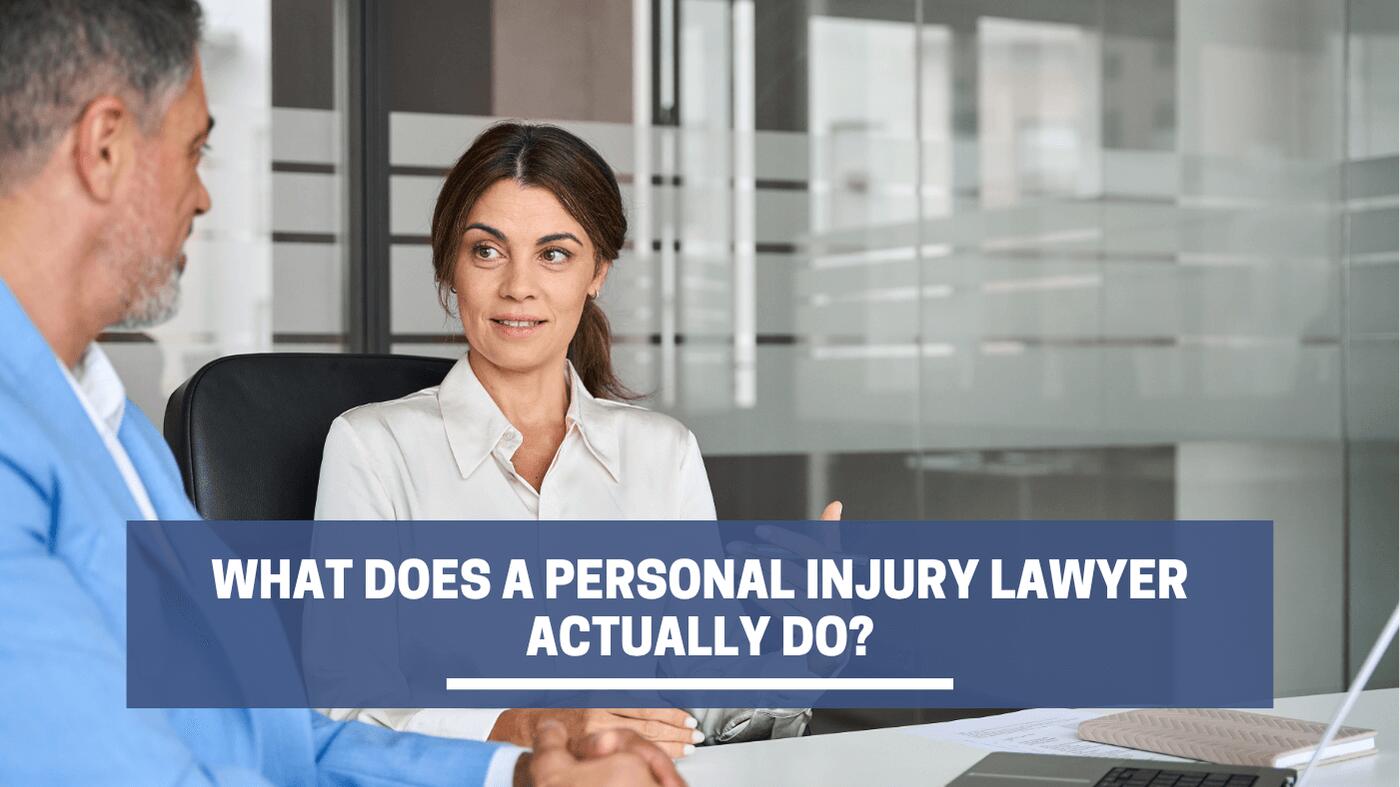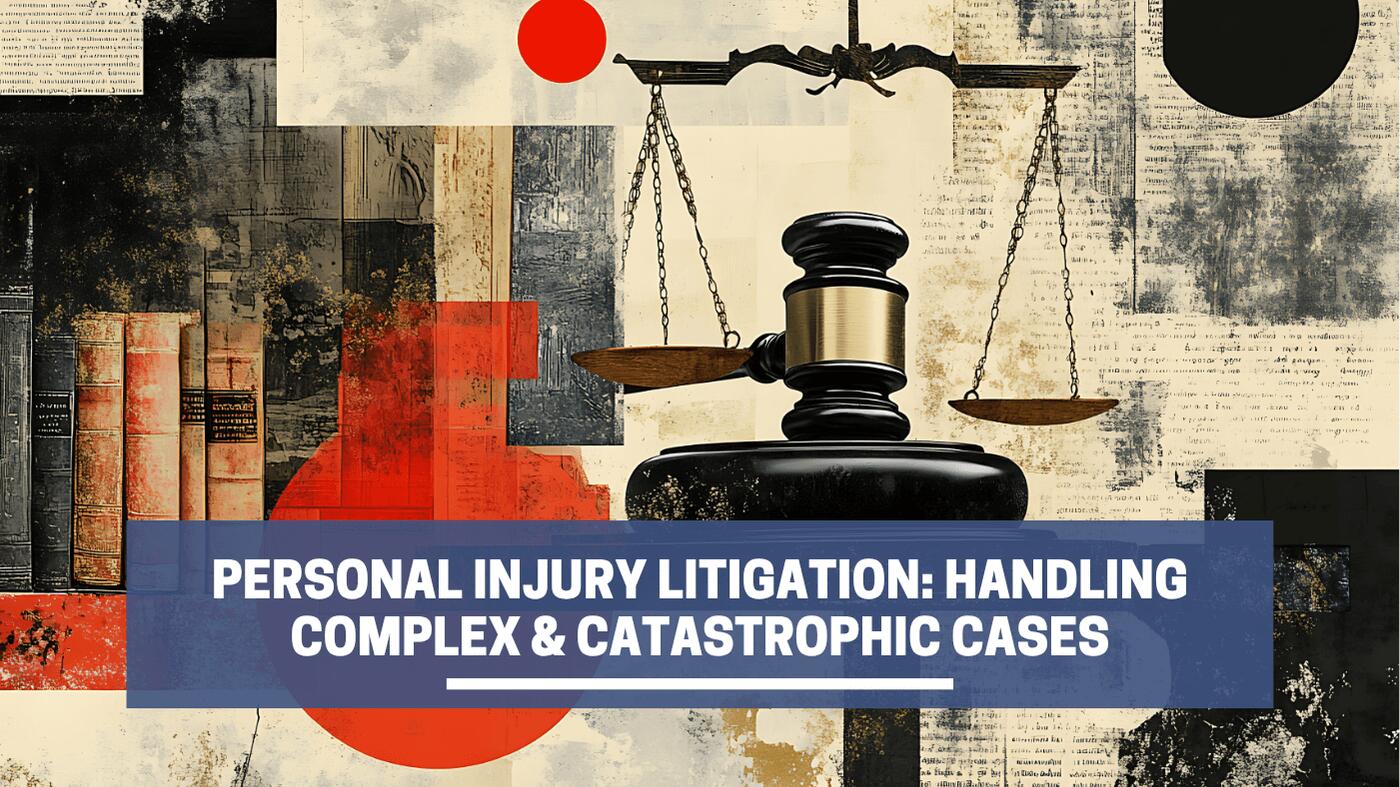After an accident, doctor visits, insurance calls, and unexpected bills can take over your life before you’ve even had time to process what happened. You’re in pain, overwhelmed, and unsure what to do next. Between wondering “Do I need a lawyer?” and “Can I even afford one?” lies the real question: What does a personal injury lawyer do?
A skilled attorney does far more than fill out forms or argue with insurance adjusters. They uncover the facts, stand up to insurance companies, and protect your rights—so you can focus on getting better after a car accident, slip and fall, or other serious injury.
Learn the benefits of a personal injury attorney in Glendale and what they do to help you get the compensation and peace of mind you deserve.
Core Legal Services of a Personal Injury Lawyer
A personal injury lawyer is a licensed advocate representing people injured by negligence. Their job is to manage every aspect of the claim process, ensuring clients are treated fairly by insurance companies and represented effectively in court when needed.
Qualified attorneys provide the following legal services for injury victims:
Evaluate Your Case During a Legal Consultation
When hiring a personal injury lawyer, the first step is a free consultation to discuss your situation and goals. During this meeting, your attorney will assess whether you have a valid case under California law by:
- Reviewing all available evidence. The attorney examines police reports, photographs, and medical records to understand how the accident occurred.
- Explaining your rights. Your lawyer walks you through California’s injury laws and legal actions you can pursue for compensation.
- Estimating claim value. They compare your case to similar settlements to give you a realistic idea of its worth.
Most personal injury firms work on a contingency fee basis. This means you pay nothing unless the lawyer wins your case.
Investigate the Accident
A successful claim starts with solid evidence. Your lawyer and their team look closely at what happened and gather the proof needed to show who was at fault and how the accident affected you.
Injury claim help in California often includes:
- Collecting documentation. They gather police reports, witness statements, and photographs to confirm key details.
- Inspecting the scene. Your lawyer or investigator visits the location to document hazards, traffic conditions, or lighting.
- Preserving evidence. They secure medical records, damaged property, and video footage before they are misplaced or lost.
- Consulting experts. Specialists in medicine or accident reconstruction help explain how the crash occurred and the extent of your injuries.
These steps strengthen your position and prepare your case for settlement negotiations or trial.
Determine Who’s Responsible
One of the most important things a personal injury lawyer does is determine who’s at fault for the accident. Liability isn’t always straightforward, especially in multi-car collisions or accidents involving property owners or manufacturers.
A Glendale lawyer for accident victims can:
- Identify responsible parties. They review reports, insurance policies, and contracts to find everyone who may share liability.
- Assign portions of fault. Your lawyer evaluates each party’s role under California’s comparative fault laws.
- Coordinate shared claims. When multiple insurers or defendants are involved, they manage communication and settlement discussions.
This process holds every responsible party accountable and helps you secure the maximum compensation.
Manage All Legal Paperwork
Personal injury claims involve extensive documentation. Your lawyer handles every required form, notice, and court filing so your case stays on track and meets all the necessary deadlines.
Their work includes:
- Filing required documents. They submit insurance claims and legal paperwork, like demand letters or court complaints, within the time limits.
- Tracking key dates. Your attorney monitors all timelines under California’s two-year statute of limitations.
- Handling correspondence. They manage every letter, email, and motion between you, the insurer, and opposing counsel.
Keeping paperwork organized and timely allows your case to move forward without unnecessary delays.
Negotiate With Insurance Companies
Once your claim is filed, your attorney takes charge of all communication with insurance adjusters and defense lawyers, working to secure a settlement that reflects your medical expenses, lost income, and long-term needs.
This is how a personal injury lawyer helps with negotiations:
- Present strong evidence. They submit medical records, bills, and expert opinions to prove your losses.
- Challenge low offers. Your attorney challenges low settlement offers and responds with solid evidence and documentation to support the compensation you deserve.
- Coordinate insurance benefits. They coordinate payments across health, auto, and disability insurance to avoid overlaps, conflicts, or unnecessary delays.
A lawyer can hold insurance companies accountable and give you the strongest chance to secure a fair settlement.
File a Lawsuit if Settlement Fails
If the insurer refuses to offer a reasonable payout, your attorney can file a lawsuit in civil court. This step allows you to pursue full damages before an impartial judge or jury.
Your legal team will:
- Draft and file the complaint. They prepare the document that officially starts your lawsuit and outlines your claim.
- Prepare you for the proceedings. Your lawyer helps you get ready for depositions, hearings, and testimony.
- Represent you in pre-trial actions. They argue motions, attend conferences, and work toward a fair resolution.
After filing your claim in California, the next step is either a final attempt to mediate an agreement outside of court or going to trial.
Represent You at Trial
When a case goes to trial, your lawyer becomes your voice in the courtroom. They present your case clearly, support it with evidence, and advocate for the payment that covers your full damages.
Trial representation from a skilled personal injury attorney includes:
- Delivering persuasive statements. Your lawyer outlines what the evidence will show and connects each point back to how the defendant’s actions caused your injuries.
- Question and cross-examine. Your lawyer tests each witness’s credibility and challenges the defense’s version of events.
- Present strong evidence. They use documents, visuals, and expert testimony to show the scope of your injuries and losses.
At this stage, your attorney’s job is to prove your case and secure a verdict that compensates you for current and future losses.
Additional Services Offered by Injury Attorneys
After an accident, the legal claim is only part of what you’re dealing with. Medical bills arrive before insurance payments, and time away from work strains your finances. A personal injury lawyer helps you manage those challenges while building your case for compensation.
They can speak with doctors and hospitals about billing, track lost wages, and calculate pain and suffering damages to reflect the physical and emotional toll of the accident. If your treatment is ongoing, your lawyer will document future costs so they’re included in your settlement.
Attorneys also stay involved after the case resolves—negotiating medical liens, finalizing paperwork, and ensuring settlement funds are distributed correctly. They protect every part of your recovery, from your health to your finances.
Get Experienced Representation from The Shirvanian Law Firm
When you’ve been injured, having a lawyer who understands every stage of the process matters. The Shirvanian Law Firm offers comprehensive Glendale personal injury law firm services that cover everything from investigation and filing to negotiation and trial.
Our attorneys take care of every detail — from deadlines to negotiations — to help you secure the highest possible compensation, not just a fast settlement. You’ll stay informed throughout the process with a team fully committed to your recovery and long-term well-being.
Contact The Shirvanian Law Firm today for a free consultation. We’ll review your case, explain your options, and start building a strategy to help you recover the financial support you need to move forward.










